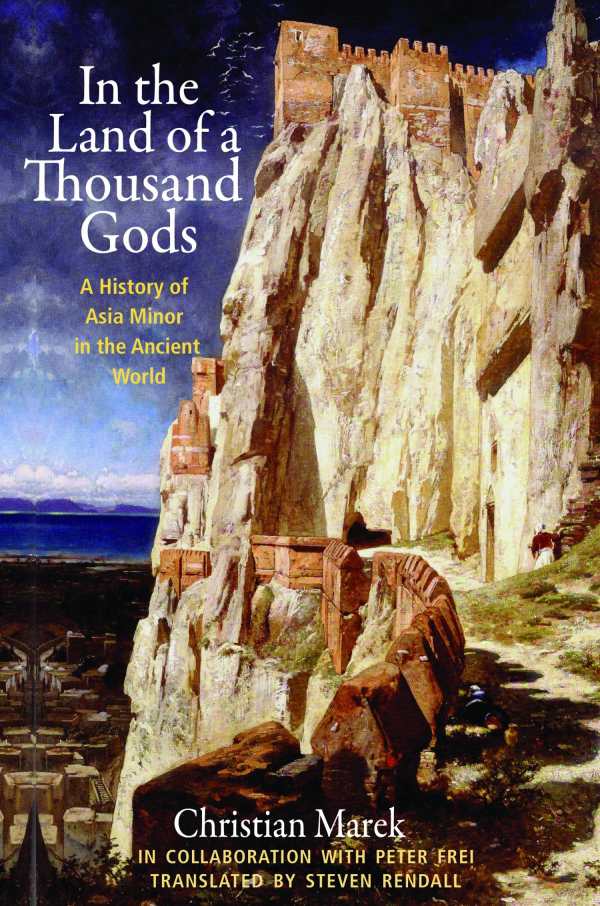In the Land of a Thousand Gods
A History of Asia Minor in the Ancient World
In the introduction to this new English translation of In the Land of a Thousand Gods, ancient history expert Christian Marek teases that because of its largeness and cultural diversity, ancient Asia Minor could never be comprehensively covered in one volume—ironic, because Marek gets close. This is a humongous, wide-ranging, yet thoughtfully organized and amply illustrated handbook on ancient Asia Minor, that peninsular land that is now modern-day Turkey.
The book views the geographic area as a land bridge connecting the Occident to the Orient, its history a melting pot of various cultures and waxing/waning cities. The lush chapters begin with prehistoric times and proceed through the Stone Age, the Bronze Age, the Persian Empire, Hellenization, and finally the establishment of Constantinople (present-day Istanbul) under imperial Rome. The best passages explore famous mysteries, like the legendary city of Troy, and illuminate the Anatolian roots of classical art, literature, and science. For example, Herodotus, “the Homer of history,” was born in Asia Minor to a Carian-Greek family, his work representing the synthesis of Greek and Middle Eastern cultures.
The book’s title is especially fitting; prominently examined are manifold cosmologies and deities that guided and differentiated Anatolia’s melting-pot civilizations. Readers interested in the spiritual will be pleased with a heady mélange of sun gods and wine gods and temples and altars. The chronological chapters reveal how the mysterious cults and iconography of vanishing peoples were integrated into larger empires and emergent monotheistic theologies like Christianity. In the Land of a Thousand Gods limns these mythic-religious transformations in glorious detail, both with fastidious prose and resplendent pictures. It is an indispensable guide for anyone interested in Asia Minor and in the broader cultural exchange between East and West.
Reviewed by
Scott Neuffer
Disclosure: This article is not an endorsement, but a review. The publisher of this book provided free copies of the book to have their book reviewed by a professional reviewer. No fee was paid by the publisher for this review. Foreword Reviews only recommends books that we love. Foreword Magazine, Inc. is disclosing this in accordance with the Federal Trade Commission’s 16 CFR, Part 255.

